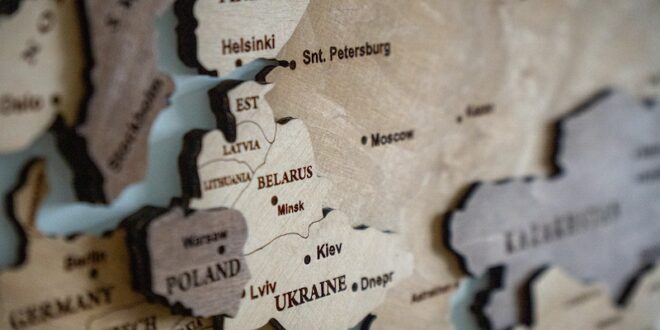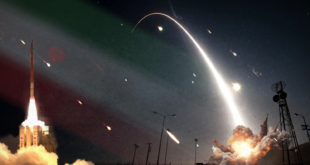The two regions of Europe that should be the beneficiaries of the Russian defeat in Ukraine are: Poland and Ukraine on the one hand and the Western Balkans on the other.In this context, the intra-European battle that is taking place in the meantime should be looked at and analyzed, and especially the position of France against Kosova.
One of the demands that is often put forward, while the intensive rocketing of Ukraine by Russia continues, is that European countries should, in addition to increasing aid for the defense of Ukraine, invest more in their security and cooperate more closely in the field of defense. However, the ongoing debate about the difficulties of European cooperation, as well as the undeniable achievements in this regard, have somehow been interrupted by the war in Ukraine. The Europeanization of defense has not been left aside; it is already a reality in many areas — we learn this from Hans-Peter Bartels’ recently published book “Deutschland und das Europa der Verteidigung”.
But according to the author in question, however, “a European army can complement NATO — but never replace it”.[1]
The war in Ukraine is justifying this rational conclusion even more.
Post-war economic miracles
There are two regions of Europe that should be beneficiaries of the Russian defeat in Ukraine: Poland and Ukraine on the one hand and the Western Balkans on the other.
In this context, the intra-European battle that is taking place in the meantime should be looked at and analyzed, and especially the position of France against Kosova.
Western democracies want Ukraine’s victory — but are they all happy that Europe’s center of gravity is migrating east, asks the British media The Guardian in its article yesterday.
“If the outcome of the war could be determined by flipping a coin, the camps would be clear: the democracies would want Ukraine to win, the autocracies would want it to lose. But real-world political outcomes are not so binary. They usually lie on a spectrum between destruction and total victory. This leaves the democracies divided into at least three camps: English-speaking, Western European, and Eastern European without Hungary. What Putin calls “the collective West” all want Ukraine to win. But not necessarily to the same extent”, is the introductory paragraph from the text of an analysis published in one of the reputable media in Great Britain, which is quoted in a comment by the editor-in-chief of the Croatian portal specializing in geopolitics [geopolitic news]. [2]
In the same comment, it is also emphasized that “Poland and Ukraine today are much poorer than France and Germany”. How can they really become a counter force in the EU? Like many postwar economic miracles—such as those of South Korea, Japan, and West Germany—this one was likely sponsored by a superpower that would benefit greatly from reshaping the political order.”[3]
In this case, it is clear that it is about the USA.
Therefore, in this context, the British analyst claims, the United States is “pumping money and technology” into Eastern Europe for this very reason, and that Washington in return requires what Paris and Berlin cannot provide: “a clear position in relations with China.” “.
“Lithuania was willing to risk trade relations with China to please Washington, Ukraine and the Czech Republic switched to nuclear fuel from the United States. “Poland recently signed a contract with an American company to build its first nuclear power plant”, says the text of the British The Guardian, among other things.
In this race for geopolitical repositioning, Berlin has also been remembered for the Western Balkans. The Berlin process and the three agreements signed by the heads of government of the six countries of Southeast Europe, among which were the two Albanian republics, testify to a kind of awareness and review of Germany’s role in the region.
But, as it seems, this move by Berlin continues to be hindered by Serbia’s traditional alliances with France and Russia and geopolitical interests that are not aligned. See for this, Brussels, through J. Borrel and A. Lajcak, clearly leaning in favor of Serbia, continues to make fun of Kosova. Consequently, Berlin and Paris, frustrated with this geopolitical shift in front of their eyes, confused by this bitter reality, as much as disappointed by the game of the diplomatic duo of Brussels that represents the EU in this dialogue, offered the plan of for overcoming the crisis provoked by Serbia and avoiding a possible new war.
The Western Europeans, with emphasis on the French and the Germans, naturally dissatisfied with the shift of the geopolitical center of gravity of Europe to the east, and with this the strengthening of the influence of the USA on the continent, are making strenuous efforts to return more strongly to reconciliation of Southeast Europe and naturally mark their presence.
“France and Germany currently support a policy of strategic autonomy for Europe, a defense and security idea that could one day lead to the creation of an EU army. Russia had the goal of creating a Eurasian Union that would stretch from Vladivostok to Lisbon. What both strategies have in common is an aversion to Anglo-Saxon dominance in Europe,” concludes The Guardian.[4]
But the reality proves that the bleeding of Paris and Berlin to create a joint army, although it is a beautiful dream that continues to push the desires of the EU axis further (it started immediately after the end of the Second World War and was personified with the personality of De Gaulle), it is hardly foreseen to become a reality in the near future.
All that the new world order in the future offers, this wing of this new army, could be as a complementary “weapon” of the current military alliance – NATO. Meanwhile, the role of the Albanian armed forces in the meantime, however modest, could be growing, being part of the approximating axis of the Transatlantic Alliance and a guarantee not underestimated by the NATO generals.
Recent actions to strengthen cooperation in the field of defense
Since 2016, Paris and Berlin have focused more intently on giving weight to the strategy for raising the security and defense arm of the EU. Initiatives in this area were and are aimed at promoting cooperation and strengthening Europe’s defense capabilities.
The EU’s common defense policies are provided for in the Treaty of Lisbon (Article 42(2) TEU). But to avoid any possible misunderstanding, the treaty emphasizes the priority of national defense policies, including NATO membership or neutrality.
In accordance with this orientation, the countries of the Western Balkans, with the exception of Serbia, have all expressed their desire to join NATO, while Kosova, taking into account the risk of Russian influence in the region and the ongoing war in Ukraine, has expressed its willingness its for accelerated accession. Meanwhile, two of the Scandinavian countries, known for their neutral stance for decades, are now on the verge of joining NATO. It is only the parliaments of the two member states of the alliance (that of Hungary and Turkey) that are expected to ratify the act of acceptance.
In recent years, the europarl.europa.eu portal writes, the EU has begun to implement ambitious initiatives to free up more resources, increase efficiency, facilitate cooperation and support capacity development as follows:
– Permanent Structured Cooperation (SSZ) was established in December 2017. As of June 2019, 25 member states have participated. PESCO currently operates on the basis of 47 cooperative projects with binding commitments, including a European Medical Command, a Maritime Surveillance System, Mutual Cyber Security Assistance and Rapid Reaction Forces.
– The European Defense Fund was established in June 2017. For the first time, the EU budget will be used to co-finance defense cooperation. On April 29, 2021, MEPs agreed that the fund would become part of the EU’s long-term budget (2021–2027) with an amount of 7.9 million euros. The European Defense Fund aims to complement national investments and provide practical and financial incentives for research cooperation and the joint development and acquisition of defense equipment and technologies.
– The European Union strengthened cooperation with NATO for 74 projects in 7 areas, including cyber security, joint exercises and counter-terrorism.
– In June 2017, it was decided to create a new command and control structure (MPCC) to improve EU crisis management. [5]
Although the wishes of Paris and Berlin to create a joint EU army remain only wishes. Therefore, the eventual formation of the European army, if only as a complement to the strengthening of the NATO alliance, could be considered a great success.
Russia’s attack on Ukraine, according to many analysts, has revealed that Europe is not yet mature enough to survive on its own. Without the support of the United States, the Russian flag would already be flying over government buildings in Kiev. Meanwhile, the march of conquest towards an eighth Eastern European country would only be a matter of time. Military experts do not even dispute this thesis. Therefore, the conclusion that “the USA has once again taken the fate of Europe in its own hands” is not easily accepted by eminent European researchers. Some people even see this thesis that “the agenda for an independent European Union should be abandoned” as too short-sighted and even dangerous.[6]
Russia has abandoned the project for the unification of Eurasia!?
The war in Ukraine has also overturned the Kremlin’s plans for the so-called “Eurasian Union”. Moscow, de facto, has abandoned not without pain its initial goal of creating a Eurasian Union from Lisbon to Vladivostok, claiming to replace it with the “Russian World”. It, aware of the impossibility of realizing that geopolitical megaproject, has limited its bleeding in this sphere, with the occupation of four “Russian-speaking” regions of Ukraine and bringing them under the protective umbrella of its nuclear weapons, calling this fact as done. Now these borders of that megaproject have been stretched from the western borders of Russia and Belarus to Vladivostok.
In this area of new developments, it remains to be seen in the coming weeks and months how the inter-European (EU) roulette of the most influential countries will behave.
In the race of who will be the most reliable partner of the USA in efforts to guarantee the implementation and security of American interests in Europe, Russia will no longer have anything to claim in the European geopolitical space.
Moscow is fully aware of this, which is why it is rapidly shifting its overall strategic direction of geopolitical action to the East and South, not yet giving up on the Western Balkans. The situation in Montenegro, but also that in Bosnia, prove once again that Russia’s presence here is sensitive. Meanwhile, the drama created by Belgrade through the initial withdrawal of the Serbian List from the Parliament of Kosova and their return after a few days, is an additional fact for the nuances in Belgrade’s fight for the annexation of the north and the remaining of Russia as an influential force in the Balkans. Western!
The concept of pure political rationality in the face of neo-fascism
In this conglomerate of interests, combined with the possibility of Russia’s removal from this hemisphere of Western (American and European) geopolitical interests, Serbia sees itself as a player with specific weight. It is trying to return to the battle of the greats for dominance as a factor that carries weight for the region. Therefore, the possibility is not excluded at all that, in the last moments, it aligns itself in favor of the West, returning the pendulum of history to the beginning of the Eastern War (1875), on the condition that it receives guarantees for expansion in the West, that is, for annexation of Republika Srpska.
Ambassador of the United States in Belgrade, Christopher Hill, on 25.07. 2022, as if he warned of the possibility of Serbian alignment in favor of the West. In the statement that was quoted by many media, he did not hesitate to remind the Serbian president that, “there are no other alternatives”, the Serbian media wrote. [7]
In accordance with this bloodletting of the West, Vucic’s mentors, being aware that the Albanian political elite, namely the tycoons who hold this irresponsible class hostage, have for years invested in turning the north of Kosova into a bone of contention, not only in reports Kosova-USA, but also in those within Albania.
In the bestselling book “The Right Side of History”, Ben Shapiro, New York Times best-selling author, explains, among other things, how a part of our society has long lost touch with ethics and morality. This connection with law and morality is lost when diplomats act, as the EU diplomacy leadership pair [the head of the European Union’s foreign policy Josep Borrell and the EU’s representative in the Kosova-Serbia dialogue Miroslav Lajçak], in the meeting held in Brussels between the Prime Minister of the Republic of Kosova, Albin Kurti, and the President of the Republic of Serbia, Aleksander Vučić, on November 21, 2022.
In these circumstances, official Belgrade, instead of starting to prepare the opinion for the next capitulation, since it has camouflaged the one of June 1999 for a full 22 years, since it was tolerated by Western diplomacy, it is almost becoming a new war, with the idea of annexing the north of Kosova.
Kosova for almost a century [87 years to be exact] was a colony of Serbia. June 1999 marked the end of this delayed process and the beginning of freedom for this part of the Albanian nation divided into five Balkan states. Europe should help Belgrade overcome this process, as it has experience with colonial history.
The philosophy of being active and coherent in the sphere of modern geopolitics, especially for states with a small economic weight, but also with a small military power, such as the Republic of Kosova, conveys the message that, the insistence to preserve even a little sovereignty and dignity, in addition to participating in the large blocs that are being recreated, we need “an impetus to provide productive solutions, rather than an excuse to wallow in despair.”
Therefore, productive solutions, as is now the case with the expected epilogue of the imposed dialogue, should not be understood simply as “escape from despair”, but a path for preserving national interests.
The generations who worked for the creation of the modern State as a political and social structure, but also that army of idealists who were engaged for decades in the EU project, were guided by the concept of pure rationality, creating real preconditions for the dominance of rationality. political for the benefit of Freedom. The time has come for this concept to return with its power, excluding the recycling of unpredictable political forces, namely neo-fascism.
 Eurasia Press & News
Eurasia Press & News




